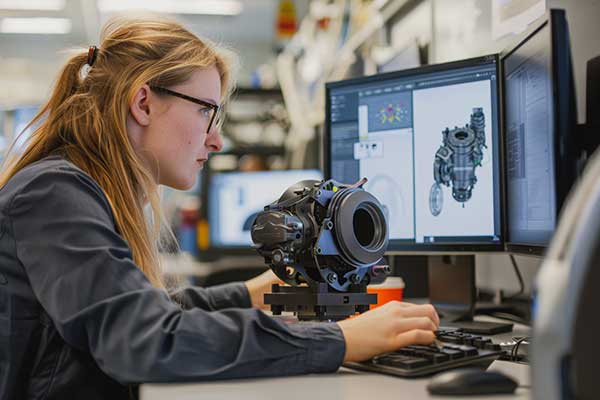Bachelor of Science in Mechanical Engineering (BSME)
The mechanical engineering degree program focuses on the application of the principles of mechanics and materials to design machines and devices. In this energy conscious world, a thorough understanding of energy and its uses is essential to the success of a mechanical engineer.
Mechanical engineering requires training in basic science and engineering principles along with the development of skills in the areas of computer-aided design, instrumentation, and planning and management of design projects. Graduates will be required to master technical elements and to demonstrate particular competence in the areas of communication, fiscal management, and project control.

-
B.S. Mechanical Engineering Flowchart
-
Program Educational Objectives
Program educational objectives are benchmarks for career and professional accomplishments that the degree program prepares graduates to achieve during the first few years following graduation. Graduates of the Mechanical Engineering program after a few years of work experience will be able to: - Meet requirements that will enable them to pursue and achieve registration as professional engineers in the state of Georgia and other states.
- Demonstrate success and/or leadership in their engineering positions.
- Successfully engage in graduate studies and/or professional development in mechanical engineering and other related professional fields.
-
Student Outcomes
Student outcomes describe the knowledge and skills acquired by students who complete the program. Students completing the program will have: - an ability to identify, formulate, and solve complex engineering problems by applying principles of engineering, science, and mathematics
- an ability to apply engineering design to produce solutions that meet specified needs with consideration of public health, safety, and welfare, as well as global, cultural, social, environmental, and economic factors
- an ability to communicate effectively with a range of audiences
- an ability to recognize ethical and professional responsibilities in engineering situations and make informed judgments, which must consider the impact of engineering solutions in global, economic, environmental, and societal contexts
- an ability to function effectively on a team whose members together provide leadership, create a collaborative environment, establish goals, plan tasks, and meet objectives
- an ability to develop and conduct appropriate experimentation, analyze and interpret data, and use engineering judgment to draw conclusions
- an ability to acquire and apply new knowledge as needed, using appropriate learning strategies.
-
Engineering Standing
View admission requirements to the KSU College of Engineering and Engineering Technology.
Engineering Standing

















